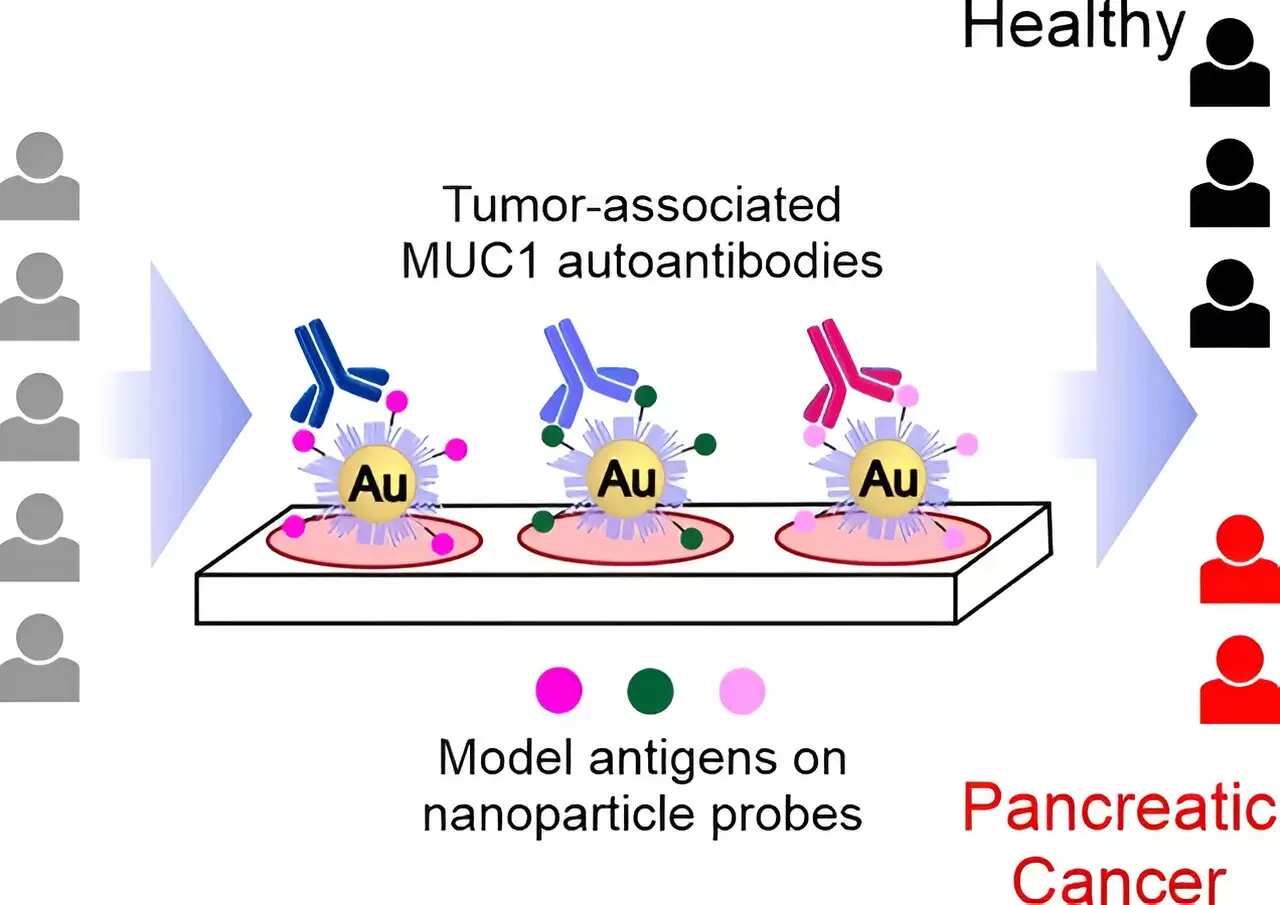Pancreatic cancer is notoriously difficult to diagnose early, leading to poor survival rates. Current screening methods often miss the mark due to their lack of sensitivity and specificity. However, a recent breakthrough in the journal Angewandte Chemie offers a glimmer of hope for more accurate and reliable diagnostic testing.
Tumors produce specific proteins known as tumor-associated antigens, which trigger an immune response in our bodies. This response leads to the formation of tumor-associated autoantibodies, which circulate in the blood at the early stages of the disease. Leveraging this phenomenon, a team of international researchers has developed a novel diagnostic approach for pancreatic cancer based on the selective detection of these antibodies.
The research team focused on autoantibodies directed against the tumor-associated form of mucin-1 (TA-MUC1), a protein found in elevated levels in various types of tumors, including pancreatic cancer. By designing synthetic glycopeptides that mimic different segments of TA-MUC1, the team created probes capable of detecting specific autoantibodies indicative of the disease.
Through structural analyses and computer simulations, the researchers identified key epitopes of TA-MUC1 targeted by known antibodies. By developing smaller glycopeptide antigens that correspond to single epitopes, they were able to achieve higher accuracy in distinguishing between samples from diseased and healthy individuals. These probes outperformed current clinical biomarkers for pancreatic cancer, offering a much-needed improvement in detection efficiency.
The introduction of a structure-based approach to antibody detection could revolutionize the field of pancreatic cancer diagnosis. By selecting autoantibody subgroups with higher tumor specificity, this method holds promise for earlier detection and more targeted treatment strategies. The use of synthetic glycopeptides immobilized on gold nanoparticles for diagnostic assays represents a significant advancement in the quest for improved screening tools for pancreatic cancer.
The development of a new diagnostic method for pancreatic cancer based on the detection of tumor-associated autoantibodies marks a crucial step forward in the fight against this deadly disease. With further research and validation, this innovative approach could pave the way for earlier detection, more accurate diagnosis, and ultimately, improved outcomes for patients battling pancreatic cancer.


Leave a Reply